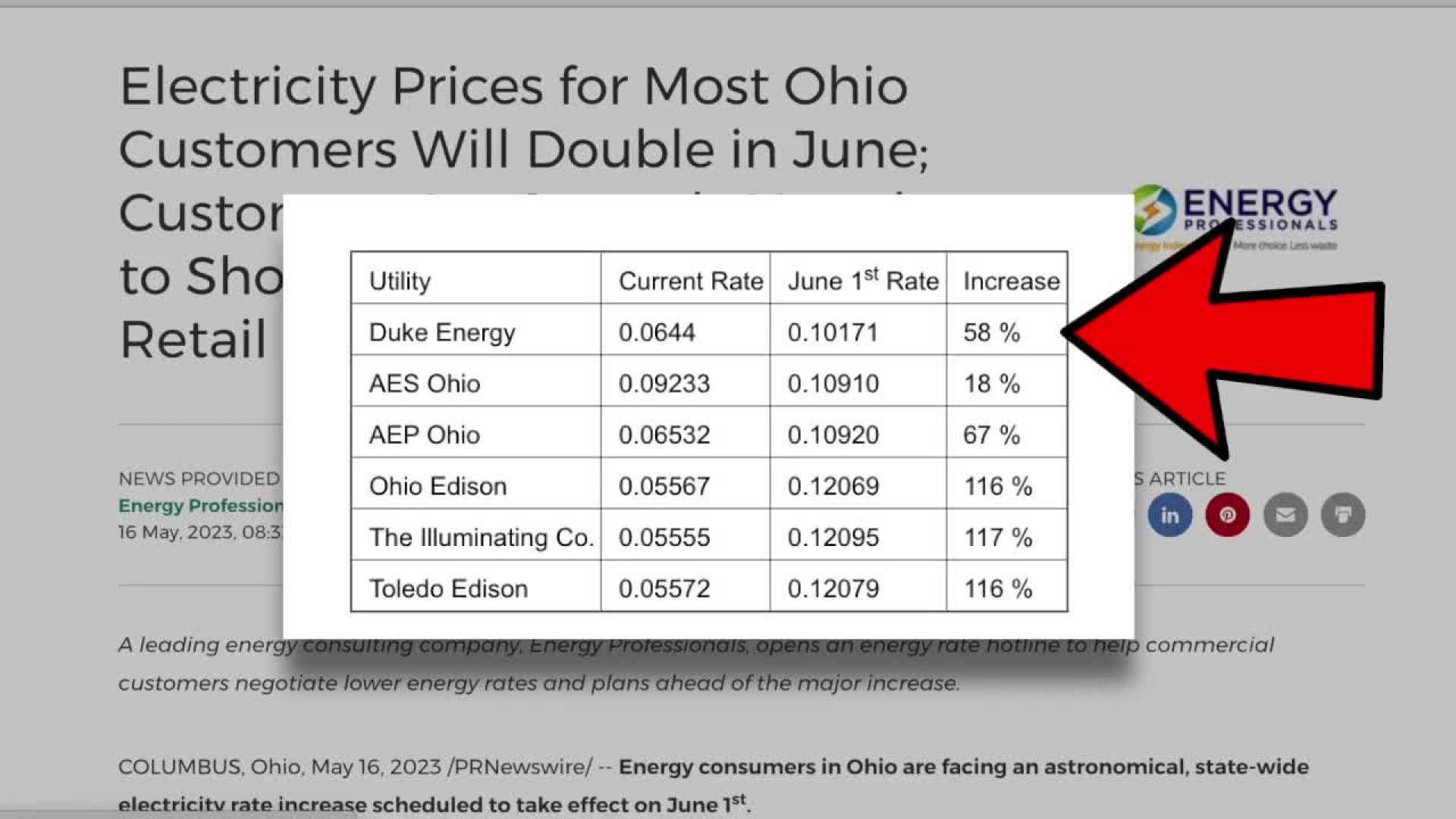Business
Ohio Customers Brace for 25% Increase in Electric Rates

CINCINNATI, Ohio — Duke Energy will increase electric rates for Ohio customers on June 1, 2025. The utility company is raising its standard default plan to 10.445 cents per kilowatt hour, representing more than a 25% jump in the supply portion of customers’ bills.
This increase comes at the start of summer, a time when demand for electricity typically rises. While the delivery fee will remain unchanged, many households could see their monthly bills rise by an estimated $10.
George Makris, a local resident, expressed frustration about the hike. “This bill is the highest we’ve ever had,” he said. The Ohio Consumers’ Counsel attributes the rate increase to factors like rising temperatures, greater energy needs from data centers, and the electricity demands of Bitcoin mining operations. JP Blackwood, a representative from the Counsel, noted that these activities consume a significant amount of energy.
As rates climb, Blackwood encourages residents to explore alternative suppliers to find better deals. Many Ohioans have successfully lowered their bills by switching suppliers either independently or through community programs. Finding a cheaper supplier can save households between 10% to 30% on their electricity costs.
The Counsel also warns consumers to remain vigilant about the terms of their contracts. Blackwood stated that while locking in a rate may offer short-term savings, bills could double once initial rates expire after six months to a year.
To further manage expenses, Rob Evans of a local HVAC company recommends annual air conditioning tune-ups. He explained that keeping your air conditioner running efficiently can help reduce energy consumption in the summer months. “You want to make sure it has the right amount of refrigerant in it,” he said. Regularly checking air filters to ensure they are clean is also essential.
With electric rates expected to stay high during the summer months, Evans emphasized the importance of taking steps to minimize utility expenses, ensuring that residents do not waste their money.












